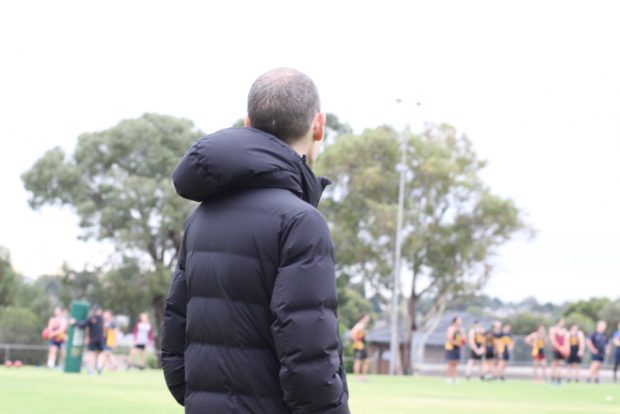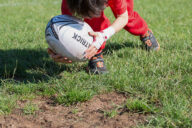I recently spent some time watching my 18 year old son compete in a football tournament and have since been reflecting on, and appreciating, the changes in my attachment to sport, and to competition in general.
I grew up in a family in which most of my siblings were involved in sport in some way and the competitive nature of the games that we had between ourselves was considered quite normal and healthy. We were all very passionate about sport, and in particular the national rugby team, which was often the source of intense debate / arguments about team selections or the result of a recent game.
I had grown up with this attitude to sport and competition and I carried it on with my own children. I can remember encouraging many playful, fun times together with my sons to turn into competitive battles. Kicking a ball in the back yard, shooting some baskets with the basketball, playing handball and even going for a walk together and finding a stone to kick along the path would all inevitably end up becoming competitive.
As I have said, this behaviour felt ‘normal’ and ‘healthy’ and was seen by those around me, and society in general, as a healthy, fun way to connect and build relationships with others. I was strongly influenced by the images I saw in the media and the way sports stars were held up as role models.
I was introduced to Universal Medicine and the teachings of the Ancient Wisdom, as presented by Serge Benhayon, about 9 years ago. Since then I have learnt to reconnect to the tender loving man that I naturally am and feel more able to claim these qualities in my everyday livingness, and by doing so reflect something different to those around me.
These changes have been gradual and are ongoing, but the increased awareness has allowed me to feel the enormous impact sport has on me and on those playing it.
I have become more deeply aware of:
- Being pulled into the emotion of the game and the increased anxiety I feel in my body as a result.
- The energy of the supporters when attending games and how this often changes during the course of the game depending on how their team is performing.
- How physical sport can be (even ‘non-contact’ sport), and just how abusive players are being to their bodies and to each other.
- The emptiness I can feel in many of the players and how sport is used to fill this void. Even after winning a big game players can still feel empty and lonely with no sense of joy to be felt.
- How beneath the tough persona created by many of the men who play contact sports just how gentle they truly are, and how this persona is created in order to fit the image of how a ‘real’ sportsman should be.
- The extent to which I allowed discussing sport to become a means of connecting to other men. I settled for the safe, superficial conversations about sport and work as a way of ‘fitting in’ and as a way of avoiding expressing to others how I was truly feeling.
I found that how I expressed with other men influenced how I expressed with family and friends. I realise now that expressing in this way prevented me from experiencing the joy that can come from allowing others to feel the tender loving man I am in my expression and feeling the connection with them evolve as a result.
There were over 300 gorgeous young men attending this football tournament with a huge amount of time and effort involved in organising and running it, and while it may have been seen by some as successful, the failure in my opinion was the lost opportunity for these young men to truly connect to one another. I felt this connection was distorted or destroyed by competition.
By Peter Campbell (55), Support Worker, Tauranga, New Zealand
Further Reading:
Sports Competition – the Pursuit of (Feelings of) Emptiness
My Turnaround from Competitive Running to Connection with Me
Competitive sports: the pursuit of emptiness





